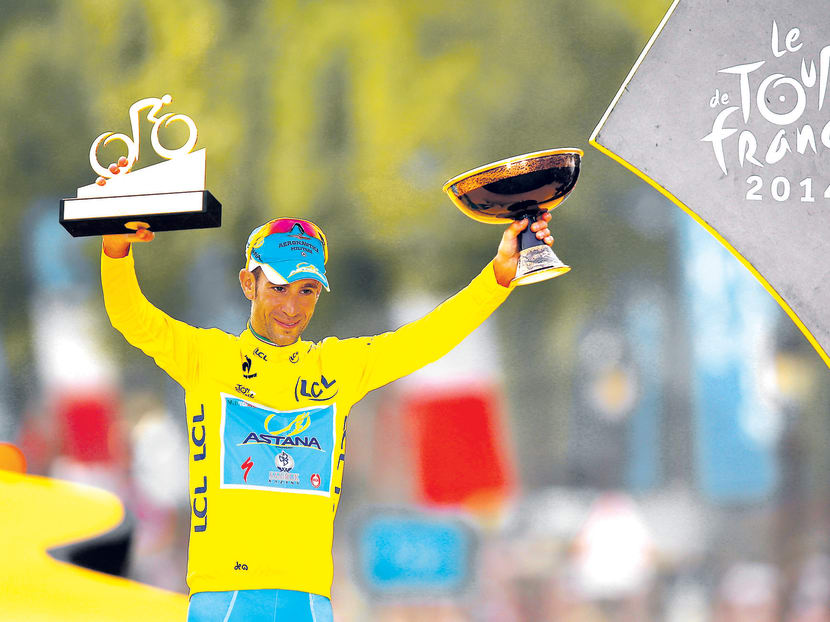Good guys do win
PARIS — As a teenager, Vincenzo Nibali uprooted himself from his home in Sicily to head for Tuscany — and a career on a bike.

Vincenzo Nibali stays humble and says he is not a big champion or legend despite winning the
Tour de France.
Photo: Getty Images
PARIS — As a teenager, Vincenzo Nibali uprooted himself from his home in Sicily to head for Tuscany — and a career on a bike.
Off to join a cycling programme and move in with another family, Nibali left behind the video and photo shop of his father, a cycling fan, where the boy whiled away many hours watching footage of riders such as Italian greats Felice Gimoni, Giuseppi Saronni and Francesco Moser.
He left behind his grandfather, an Italian who once immigrated to Australia, then returned to Sicily to build a big house. Nibali reportedly said he cannot really speak much with his proud grandfather about his Tour de France these days: He cries too much.
“I have made a lot of sacrifices,” he said. “I left my family when I was 15 years old.”
Those sacrifices paid off in full on Sunday, when the boy from Messina ascended the Tour winner’s podium after an opportunistic, level-headed and savvy ride over three weeks to earn the most prized honour in professional road cycling on the Champs-Elysees.
Humble and serene, Nibali, 29, has given Italy what some call the antithesis of its last Tour champion: flashy and flamboyant Marco Pantini, a national hero after his 1998 victory but whose life came to a tragic end in 2004 due to a drug overdose.
“I grew up watching Pantani and many other riders on TV,” said Nibali. “My father was a big fan and used to tape races. He also had documentaries and the one I liked best was of Francesco Moser, because of his innovative style.”
The yellow jersey wearer typically speaks to reporters after each stage: Nibali wore it for 19 of the Tour’s 21.
His style is soft-spoken, unflappable — even in the face of inevitable questions about doping, which pummelled the sport’s image long before Lance Armstrong dealt arguably the most devastating blow: His admission that he doped his way to his seven Tour victories, which were later stripped from him. “Don’t compare me to Armstrong,” Nibali said, calling himself a “flag-bearer of anti-doping”.
The Italian competes in one-day “classic” races as much as the big events and likes to attack: He’s known as “The Shark of the Strait” of Messina for a reason.
Nibali, refusing to simply protect his yellow jersey, burst ahead to win a tough stage at the Hautacam ski station in the 18th stage, padding his overall lead. It evoked memories of Eddy Merckx — regarded by many as cycling’s greatest rider — who attacked while in yellow too. Nibali now joins five others who have won cycling’s biggest races: The Spanish Vuelta, the Giro d’Italia and the Tour.
Italian sports newspaper La Gazzetta dello Sport reported that Nibali has a contract with his Astana team through 2016 worth nearly €4 million (S$6.7 million) per year, and would earn an extra €1 million bonus for winning this Tour.
Nibali, whose parents run two small shops, stays humble for fans back home, where Prime Minister Matteo Renzi invited Nibali over to celebrate even before victory was officially confirmed. “I don’t think of myself as a legend or a big champion,” Nibali said. “I like to think of myself simply as a cyclist.” AP





